The Lord of the Rings – The Rings of Power Season 2 review: Though it has ample material to propel the narrative forward, TROP season two is plagued by a series of poor choices, just like the decision to kill off Bronwyn — simply because actor Nazanin Boniadi exited the show.
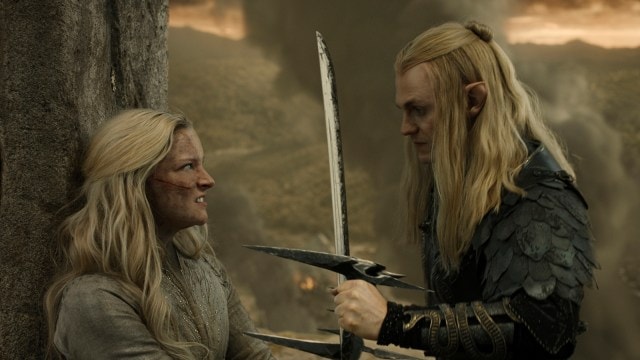
Morfydd Clark as Galadriel and Charlie Vickers as Sauron. (Image: Prime Video)
The Lord of the Rings: The Rings of Power Season 2 review: As I was watching The Rings of Power Season Two, I was struck by just how much I still remember from The Lord of the Rings movies — not only the high points, story, dialogues and performances but the exact placements of various characters in certain shots, the camera angles and the names and details of even minor characters. At the same time, this led me to another realisation: how little of The Rings of Power has etched itself into my mind. In other words, if there’s one thing Amazon Prime Video’s fantasy series isn’t, it’s memorable.
While the first season was more engaging, offering an earnest exploration of the interpersonal relationships between characters and laying neat groundwork, season two is an absolute letdown, giving the impression that the makers had no clear idea of how to advance the storylines, characters and worlds they developed. And even the few promising elements are undercut by shoddy writing.
After the first season concluded with the revelation that Halbrand (Charlie Vickers) was Sauron in disguise and the second season began with Sauron asserting himself as the new master of the Orcs following Morgoth’s downfall — besides revealing his plan to create a new kind of power, “not of the flesh, but over the flesh,” to rule Middle-earth — one would expect the series to become more gripping. With the Second Age being a notably darker period than the Third, there was a reasonable anticipation for some truly thrilling moments. However, not only does The Rings of Power fail to deliver such moments, but it also undermines the few strengths established in season one. The makers’ lack of direction results in heavy-handed explanations, almost to the point of frustrating spoon-feeding, along with repetitive scenes that seem designed merely to pad out each episode to a full hour, whereas most could have been tightened to 30 or 40 minutes with a sharper edit.
Although the initial three episodes show promise, featuring tested friendships and kingdoms on the brink of collapse following the forging of the rings for the elves, this doesn’t last long. Among the elves, Elrond (Robert Aramayo) increasingly fears that Galadriel (Morfydd Clark) is once again falling into Sauron’s trap through her use of Nenya, her ring. Meanwhile, Sauron — now posing as Annatar, the Lord of Gifts — is making headway in his scheme to persuade Celebrimbor (Charles Edwards) to forge more rings, including for Men. Among the dwarves, the equation between Prince Durin IV (Owain Arthur) and his father, Durin III (Peter Mullan), the King of Khazad-dûm, is strained as Durin IV harbours suspicions about Annatar.
Watch The Rings of Power Season 2 trailer here:
Elsewhere, Nori (Markella Kavenagh) and Poppy (Megan Richards) become separated from the Istari (Daniel Weyman), who must now continue the journey of self-discovery alone. In time, he realises that he is also tasked with stopping both the Dark Wizard and Sauron. In Númenor, Queen Míriel (Cynthia Addai-Robinson) becomes increasingly aware of her kingdom’s impending downfall, exacerbated by Pharazôn’s (Trystan Gravelle) rule. He is supported by his son, the cunning Kemen (Leon Wadham) and Elendil’s (Lloyd Owen) daughter Eärien (Ema Horvath). The death of Bronwyn (Nazanin Boniadi) deepens the rift between her lover, Arondir (Ismael Cruz Córdova), and her son, Theo (Tyroe Muhafidin). Meanwhile, Isildur (Maxim Baldry), having been separated from his fellow Númenorians, joins Arondir and Theo.
These subplots suggest that season two of The Rings of Power has ample material to propel the narrative forward. However, just like the decision to kill off Bronwyn — simply because actor Boniadi exited the show — thus wasting the potential of a character that was well-developed in the first season and could have contributed significantly to the story going forward, the series is plagued by a series of poor choices. The few that aren’t totally poor turn out to be uninspiring.
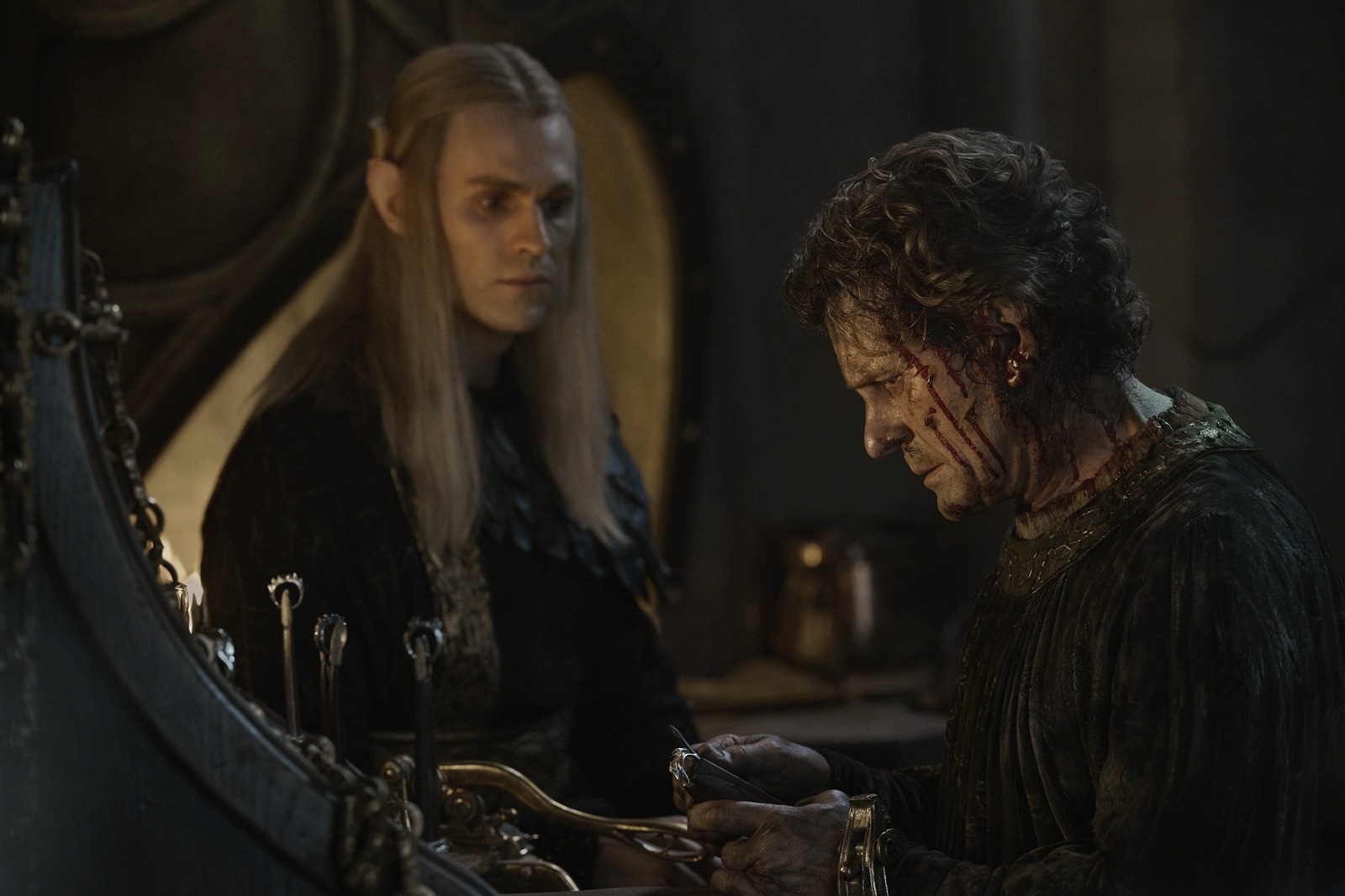 Charlie Vickers as Sauron and Charles Edwards as Celebrimbor. (Image: Prime Video)
Charlie Vickers as Sauron and Charles Edwards as Celebrimbor. (Image: Prime Video)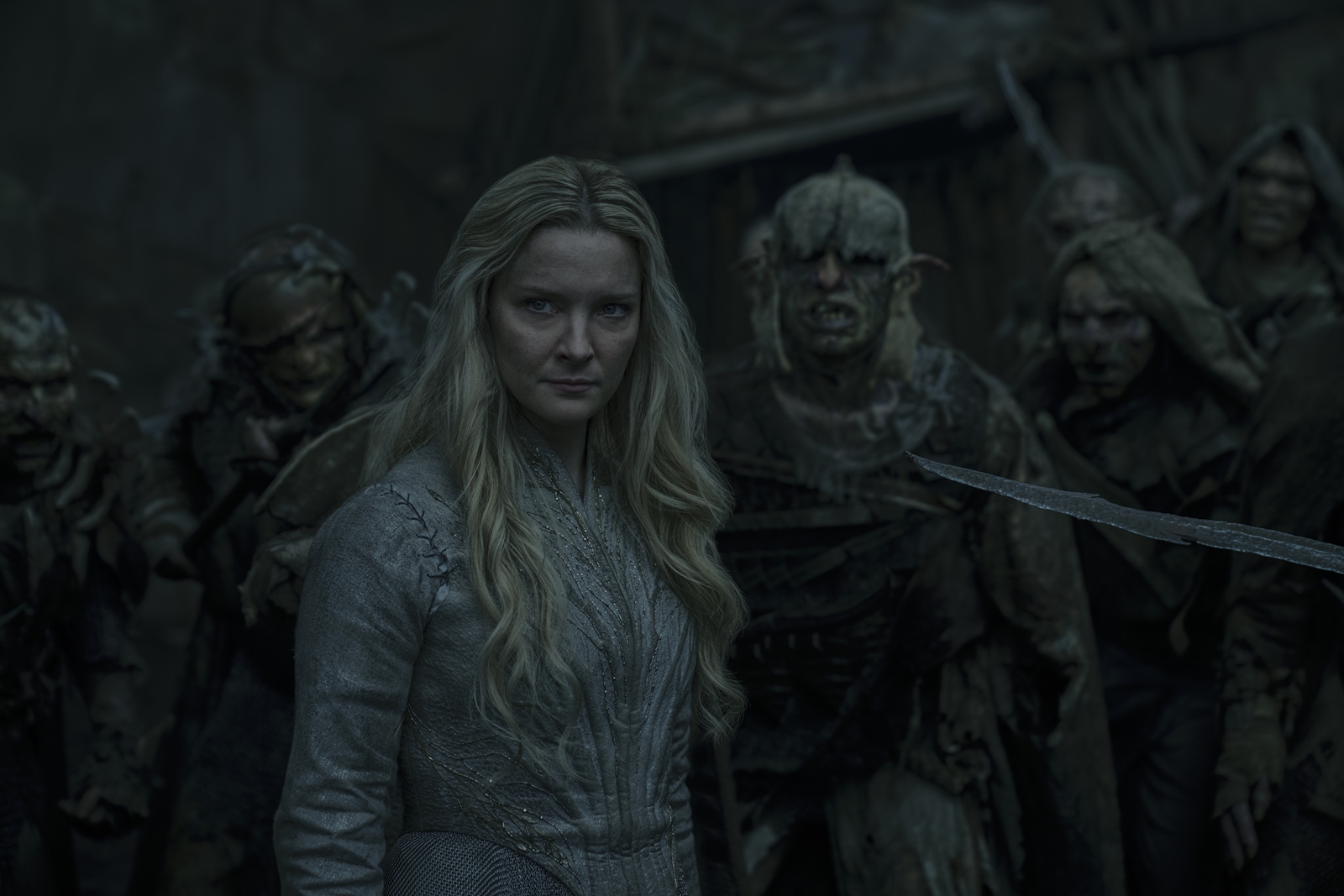 Morfydd Clark as Galadriel. (Image: Prime Video)
Morfydd Clark as Galadriel. (Image: Prime Video)
A notable example of this is the scenes with Tom Bombadil (Rory Kinnear) and the Istari. These moments not only fail to resonate but also feature forced humour that falls flat. Such “jokes” also undermine the climactic reveal that the Istari is actually Gandalf, a conclusion anyone familiar with LOTR would have reached much before, noticing the humorous side of the Istari.
The writing is uneven throughout, with much of the on-screen magic relying on the actors’ abilities. Although the interactions between Annatar/Sauron and Celebrimbor are compelling — largely due to the performances of Vickers and Edwards — their scenes soon become repetitive with nothing much being offered. While the chemistry between Arondir and Theo is effective, they only have a few scenes together, and the same can be said about Míriel and Elendil. The mysterious Estrid (Nia Towle) too ends up being forgettable owing to lacklustre writing.
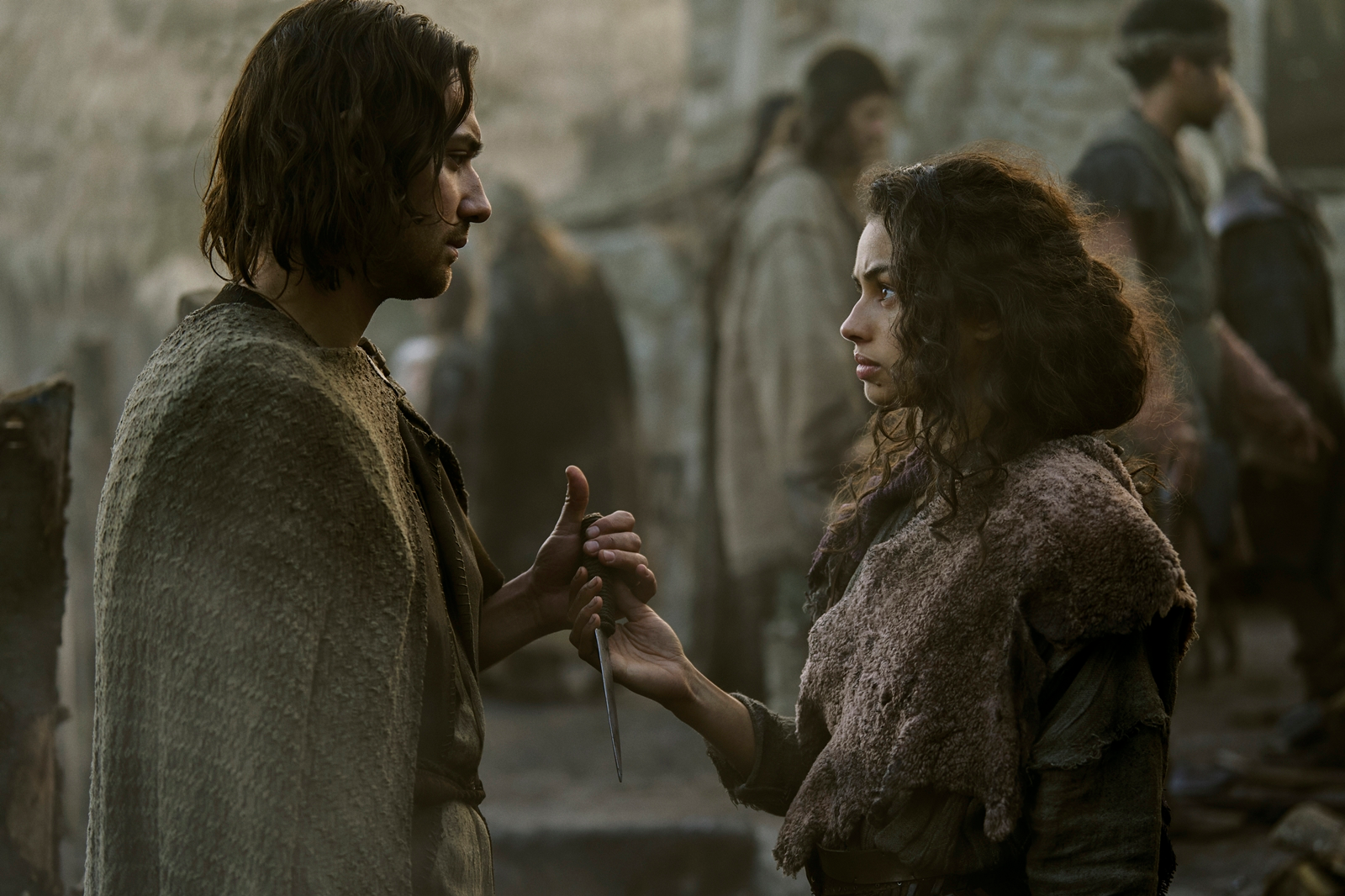 Maxim Baldry as Isildur and Nia Towle as Estrid. (Image: Prime Video)
Maxim Baldry as Isildur and Nia Towle as Estrid. (Image: Prime Video)
Creators JD Payne and Patrick McKay, along with their writing team, struggle to develop all the main characters evenly, which underscores Tolkien’s brilliance and the depth he achieved through years of world and character-building. The LOTR films too, directed by Sir Peter Jackson — who also co-wrote the screenplay — succeeded in this aspect, while the series does not. Perhaps the most disappointing is the portrayal of the Ents, who appear and disappear without impact. Characters such as Galadriel, Arondir, Nori and Poppy largely come across as flat and unengaging, with Pharazôn, Kemen and the Durins standing out as notable exceptions.
Although the creators attempt to compensate for this by adding layers to the story and oscillating between various subplots, these transitions often feel disjointed and erratic. Rather than utilising a parallel narrative structure, the show focuses on a limited set of subplots in each episode, leaving others untouched for a prolonged period, causing viewers to forget them as they progress through the series.
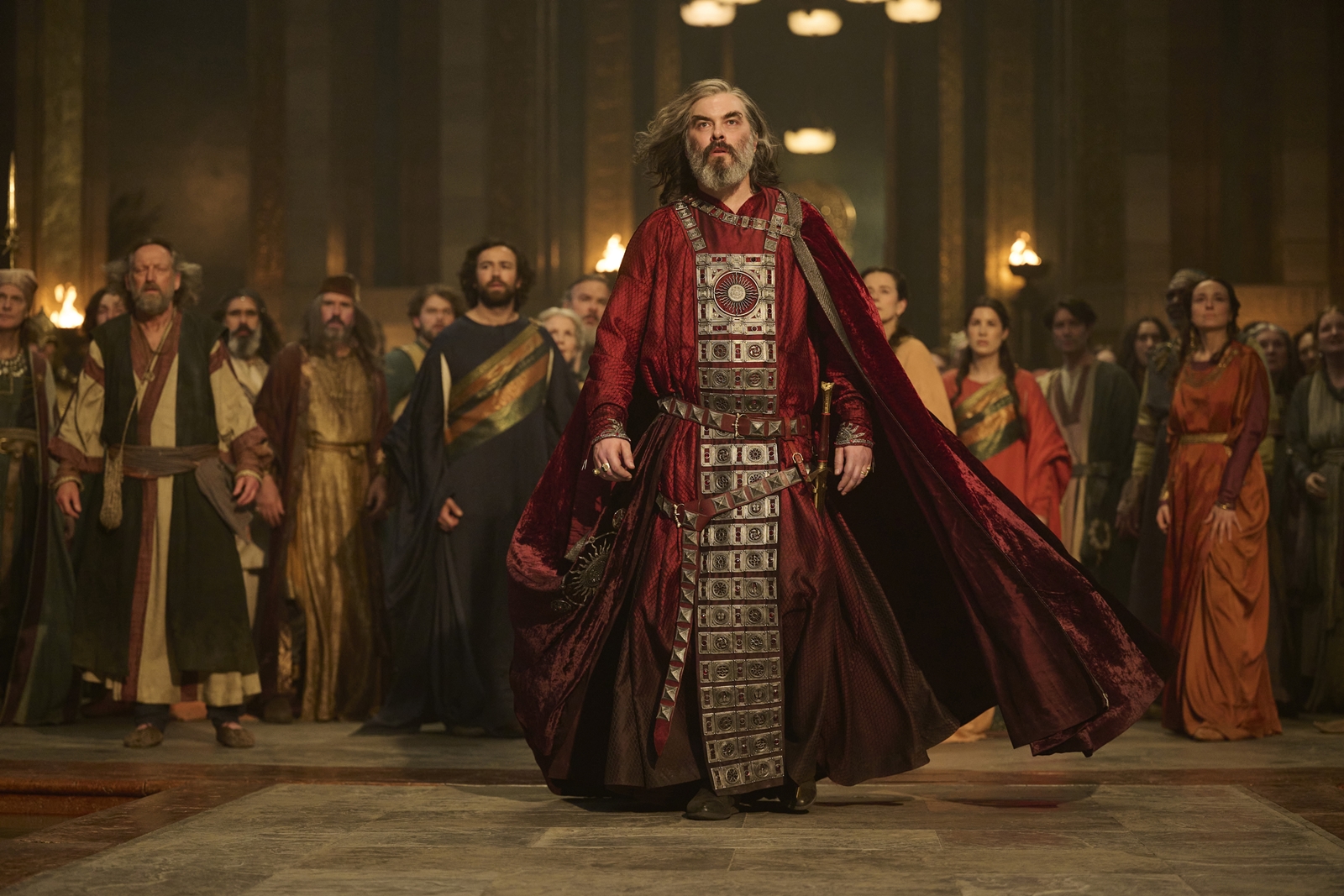 Trystan Gravelle as Pharazôn. (Image: Prime Video)
Trystan Gravelle as Pharazôn. (Image: Prime Video)
Remember the iconic conversation between Pippin and Gandalf in Lord Of The Rings: The Return of the King? When Pippin says, “I didn’t think it would end this way,” Gandalf replies, “End? No, the journey doesn’t end here. Death is just another path, one that we all must take. The grey rain-curtain of this world rolls back, and all turns to silver glass, and then you see it. White shores, and beyond, a far green country under a swift sunrise.” The imagery conveyed by these words was so powerful and uplifting, evoking a sense of hope. The Rings of Power too attempts to evoke a similar moment, between Galadriel and Celebrimbor, with the latter saying, “It is not strength that overcomes darkness, but light. Armies may rise, hearts may fail, yet still, light endures and is mightier than strength. For in its presence, all darkness must flee.” Although this line is poetic, it fails to resonate due to the lack of depth in the characters, leaving viewers emotionally disconnected from them.
Unfortunately, much of the dialogues throughout the season is subpar, with only a few exceptions, such as the aforementioned line and Poppy’s quote of Sadoc Burrows (Lenny Henry): “What’s broke is broke and won’t fix. And all anybody can do is try and build something new,” the power of which is further amplified by the overlay of Sauron’s face, suggesting he is contemplating the creation of something greater that would allow him to control all the rings (One Ring).
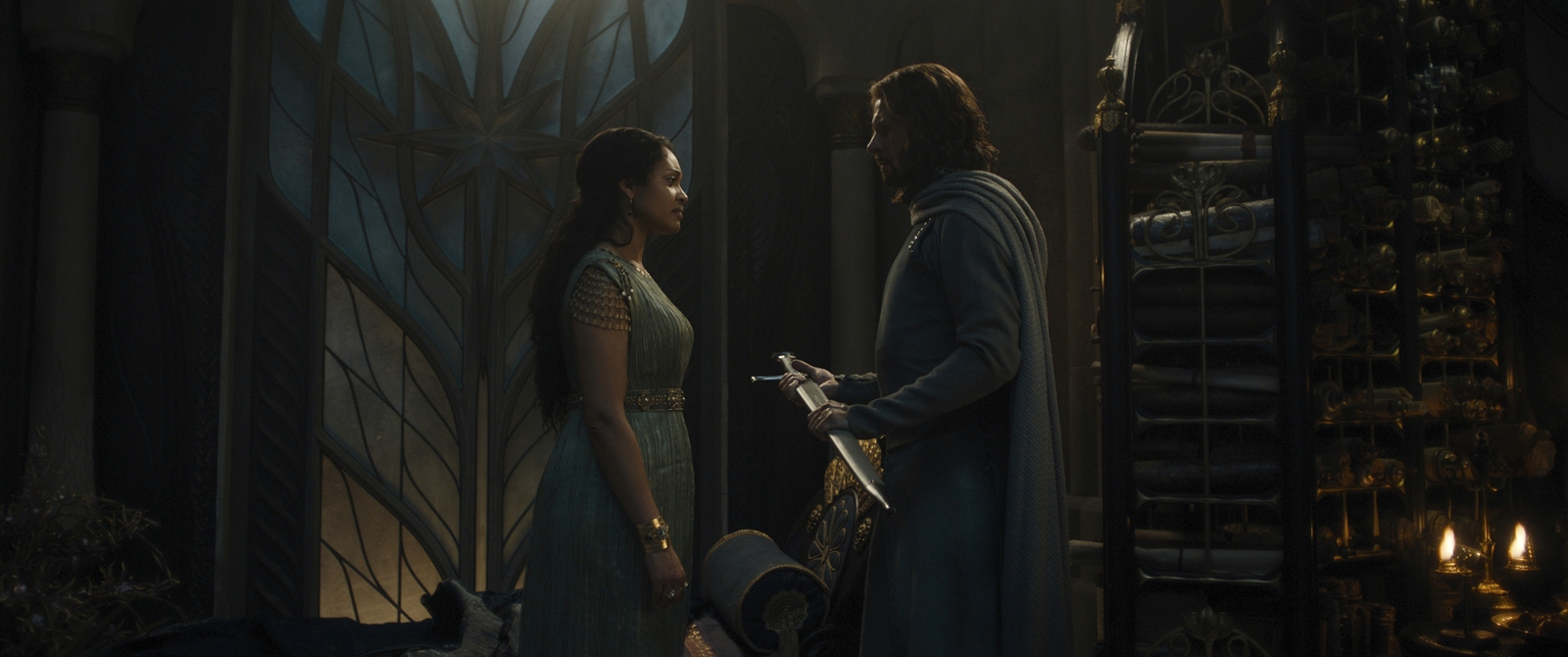 Cynthia Addai-Robinson as Queen Regent Míriel and Lloyd Owen as Elendil. (Image: Prime Video)
Cynthia Addai-Robinson as Queen Regent Míriel and Lloyd Owen as Elendil. (Image: Prime Video)
Although the show is produced on a significantly grander scale, delivering many astonishing visuals, there are moments in The Rings of Power that make one appreciate Peter Jackson’s exceptional talent as he was able to craft even more visually striking and impactful scenes two decades ago. A notable example is the Battle of Eregion, which pales in comparison to the awe-inspiring Battle of Helm’s Deep in LOTR: The Two Towers.
The show also features a moment that could have been as impactful as Éowyn (Miranda Otto) defeating the Witch-King of Angmar, featuring Rían (Selina Lo), an elven archer from Lindon, firing a flaming arrow that takes down numerous orcs. Unfortunately, the makers do not fully leverage this moment due to insufficient build-up and an unsatisfactory ending. Adar’s death, with Galadriel standing by passively, is another instance marred by poor writing. Given the pact they had made just before and Galadriel’s prowess as a warrior, it seems implausible that she wouldn’t attempt to help Adar. The season finale concludes in such a lacklustre manner that it fails to inspire anticipation for the next instalment.
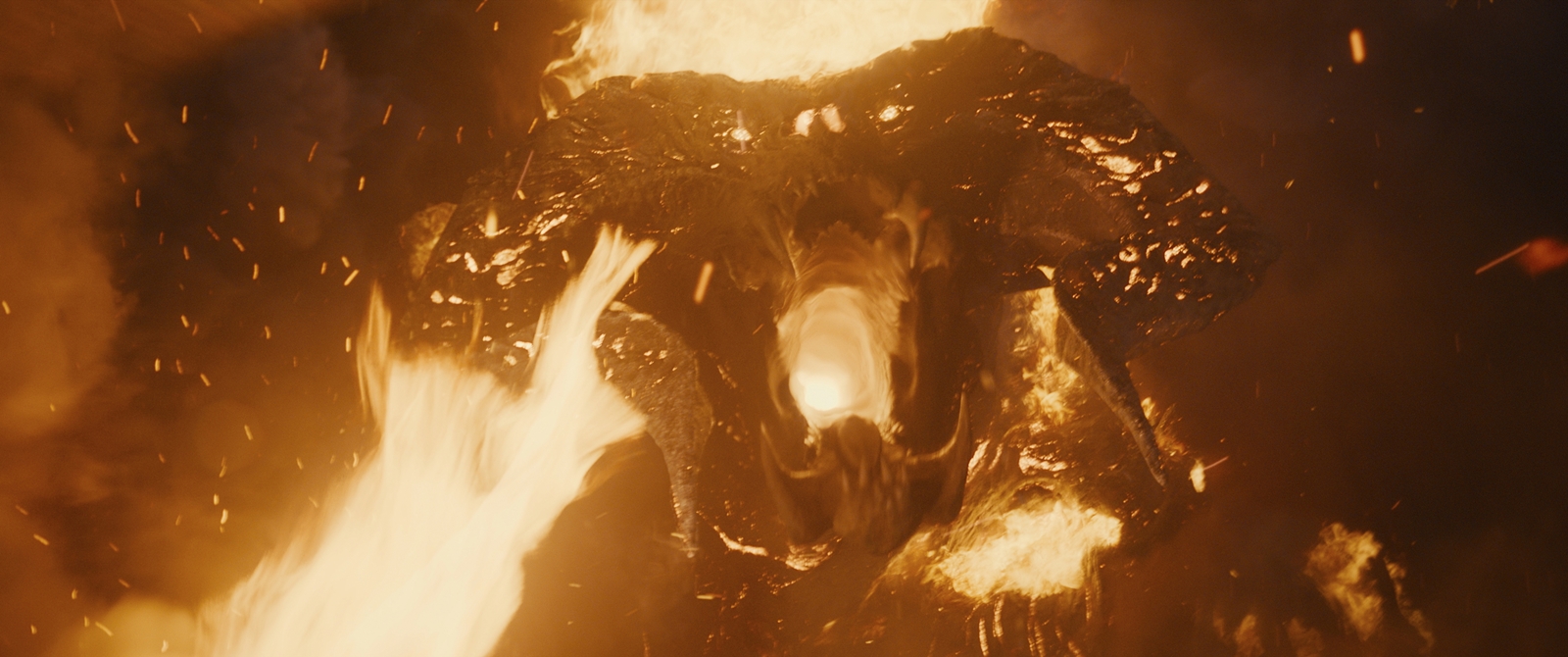 The Balrog in The Rings of Power Season 2. (Image: Prime Video)
The Balrog in The Rings of Power Season 2. (Image: Prime Video)
Nonetheless, King Durin III taking on the balrog by its horns is a thrilling and unforgettable scene. Similarly, Míriel’s gift of Narsil to Elendil, which Isildur would later use to sever the One Ring from Sauron’s hand during the War of the Last Alliance, is equally noteworthy.
Among the cast, Vickers and Edwards deliver standout performances marked by sharpness and precision, complemented by their undeniable chemistry. Wadham, Gravelle and Addai-Robinson also shine in their roles. Kavenagh and Richards perform well, while Córdova, Muhafidin and Baldry also leave a strong impression. However, the show significantly misses Boniadi’s presence and acting brilliance. Although Clark’s performance was captivating initially, it has become somewhat monotonous and almost annoying this season, with her facial expressions, body language, accent and enunciation feeling artificial. In scenes requiring Galadriel to convey a range of emotions simultaneously, Clark struggles to deliver.


